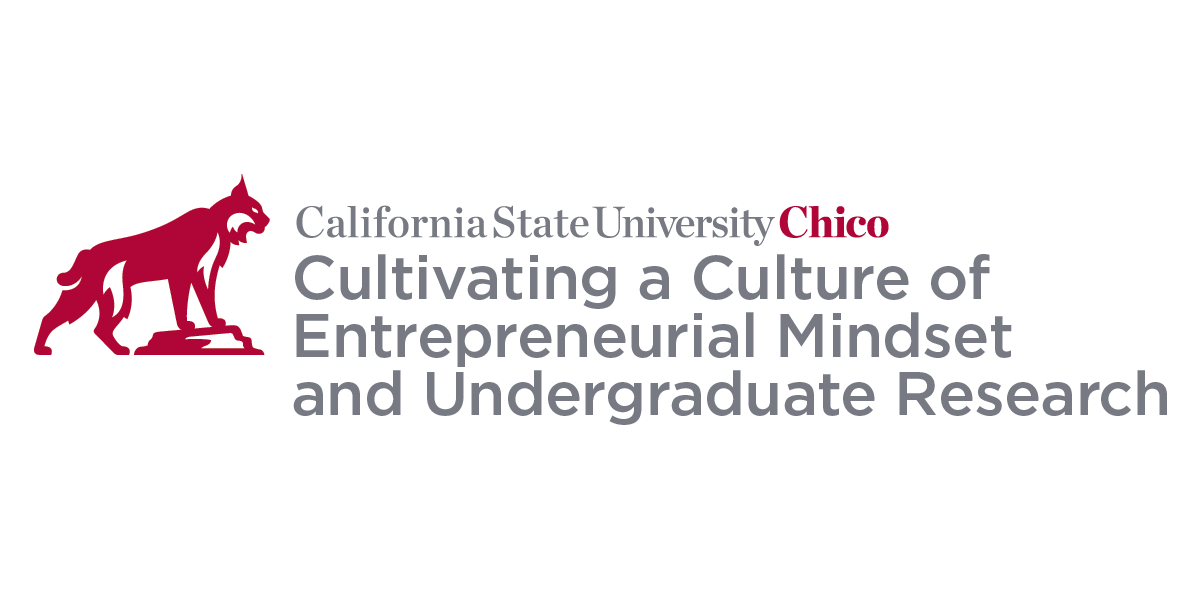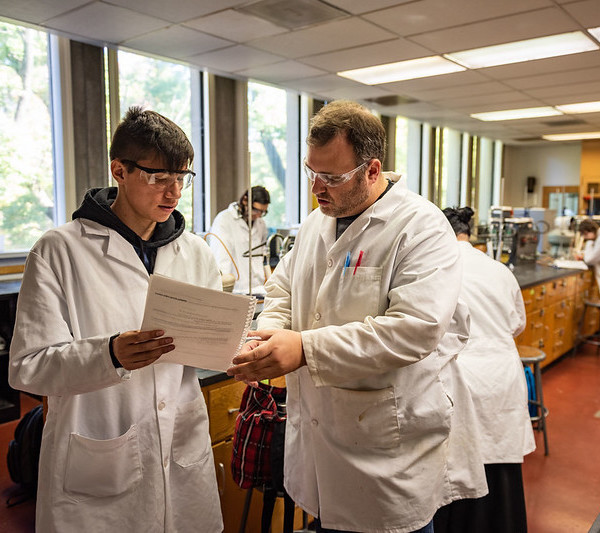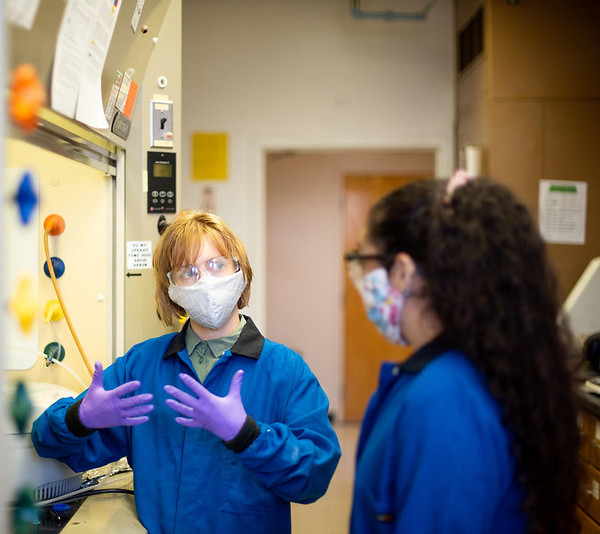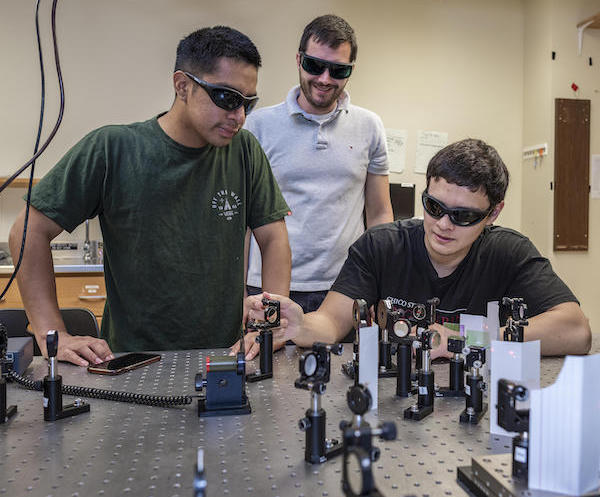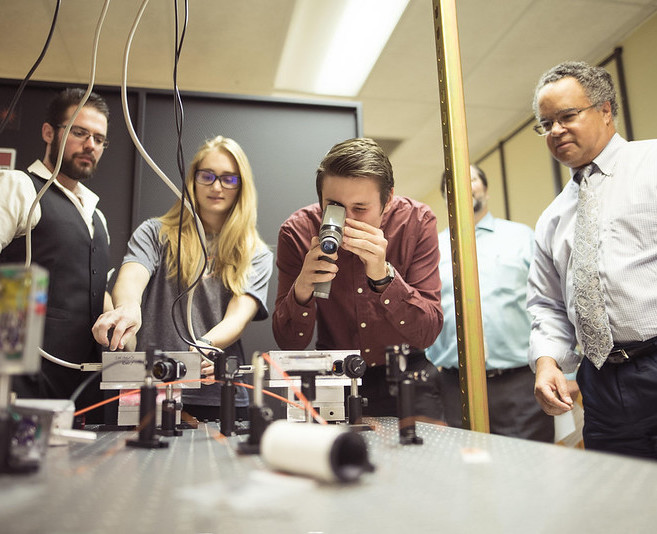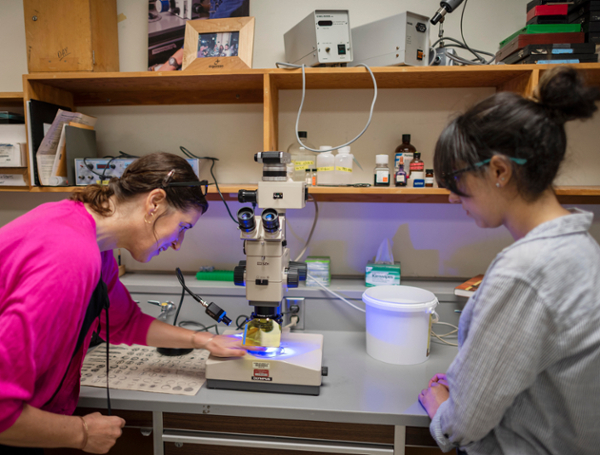The Cultivating a Culture of Entrepreneurial Mindset and Undergraduate Research – CEMUR Project aims to build on and enhance Chico State's infrastructure for teaching and research by institutionalizing effective changes in STEM education, fostering research environments that actively engage STEM undergraduates in their disciplines, and creating a new course-based undergraduate research experience and entrepreneurial mindset (CURE-E) model that combines research and entrepreneurship.
The CEMUR Project trains and supports faculty in design and implementation of the CURE-E model in STEM courses. The project's goals include:
- Enhancing the quality of undergraduate STEM education,
- Increasing retention and graduation rates of undergraduate students pursuing degrees in STEM, and
- Conducting rigorous, mixed methods social science research to deepen understanding of STEM student success in the context of a Hispanic Serving Institution (HSI)-designated primarily undergraduate university.
The CEMUR Project is funded by the National Science Foundation's Improving Undergraduate STEM Education: HSI Program.
To advance these goals, the CEMUR Project has developed the CURE-E STEM Faculty Fellows Program and is currently recruiting STEM faculty members to participate.
Learn more about Course-based Undergraduate Research Experiences (CUREs)
- What is a CURE?
Course-based undergraduate research experiences (CUREs) are authentic research experiences embedded within the course curriculum. In contrast to traditional laboratory courses where students complete a pre-determined series of activities with a known outcome, CUREs are lab courses where students work on novel scientific problems with unknown answers. CUREs vary in topics, techniques, and research questions and share five key elements:
- Use of scientific practices
- Discovery
- Broadly relevant or important work
- Collaboration
- Iteration
- What is CURE-E?
CURE-E contains the same elements as a CURE while introducing students to an entrepreneurial mindset. An entrepreneurial mindset helps students build a connection between basic research (discovery) and solutions for real-world problems. Visit the STEM Entrepreneurial Mindset to learn strategies to bring an entrepreneurial mindset into the classroom.
- What can CUREs look like?
There is no single best approach to the implementation of CUREs, which should be tailored to the needs, goals, availability of resources, and disciplinary practices of individual instructors, academic departments, and institutions. In all implementation approaches, faculty will ensure that the essential elements of the CURE-E model are included, and that entrepreneurial training is integrated with the research focus. Because the CURE model can be implemented in multiple disciplines, faculty can design specific interventions for their individual courses. Some faculty may opt for short modules, a full-semester course, or program:
- CURE modules provide short-term research experiences for students that can be incorporated into existing courses. They usually involve between two and six laboratory meetings, can be implemented affordably, and do not require extensive instructor training.
- CURE courses are standalone research experiences that allow students to conduct semester-long projects. CURE courses are a good way to draw attention to research experiences within a curriculum.
- CURE courses can be implemented as stand-alone, department-specific offerings, as part of the general education portfolio of courses across all departments and colleges, or as part of a student’s curricular involvement in a research-focused program.
Learn about the CURE-E Faculty Fellows Program
- Why you should consider teaching a CURE
Student Benefits
- Gain first-hand experience in a field of study
- Build a connection between basic research (discovery) and solutions for real-world problems.
- Prepare students for research in labs, internships, post-graduate work, and STEM careers.
- Cognitive gains, such as increasing scientific knowledge and practices.
- Psychosocial gains, such as increased scientific identity and an improved sense of belonging.
Learn about Chico State’s CURE-E courses and the faculty members who teach them.
CUREs make scientific research more inclusive
- CUREs give all students the opportunity to engage in authentic research.
- Eliminate inequitable accessibility to traditional research experiences.
- Introduce students of varying backgrounds to research.
Faculty Benefits
- Integrate your research in the course you are teaching.
- Opportunities for publications (basic scientific and/or science education research).
- Increase student engagement and help them develop a more authentic and rewarding relationship with research.
- How do I start?
Convinced? Ready to start? Visit our CURE-E Faculty Fellows Program to get started.


